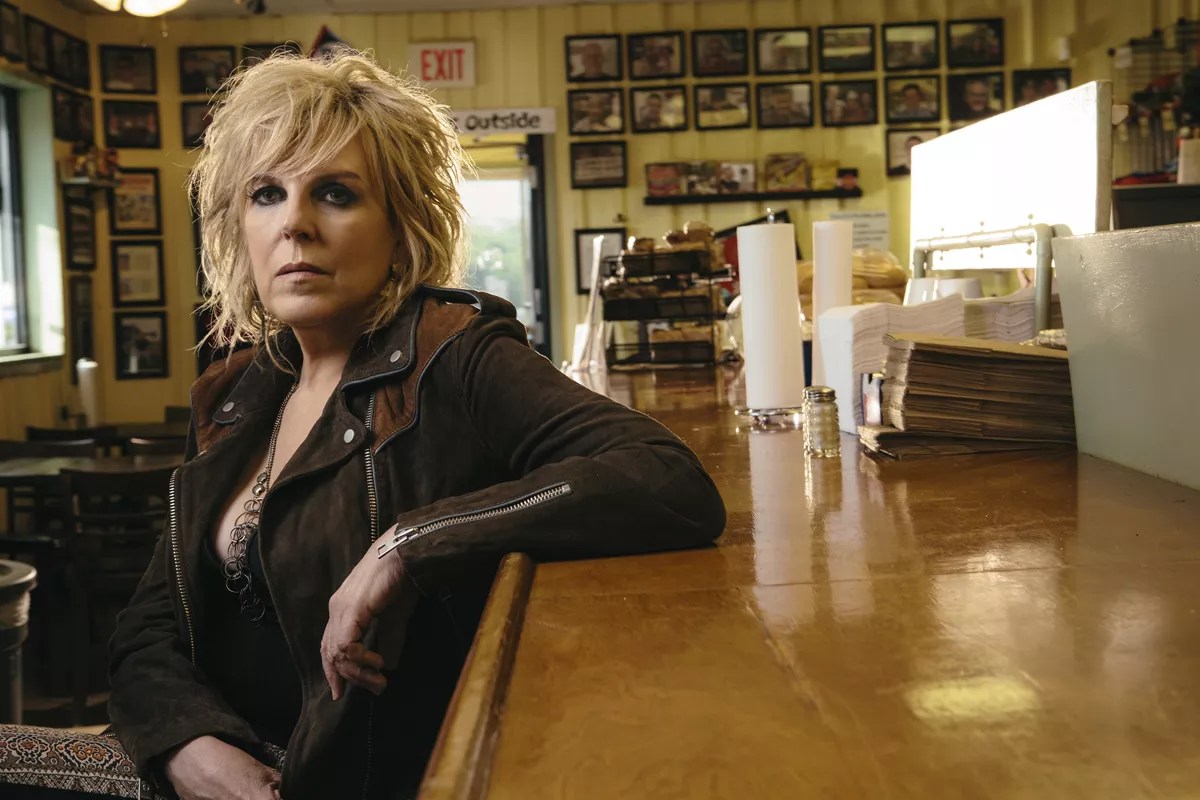
David McClister

Audio By Carbonatix
Lucinda Williams can’t stop talking about death. And it’s not just talking about it. She can’t quit writing songs about mortality, either – even though she wants to.
“I’m trying to get off of this death thing,” she says, pointing to her last two albums, 2014’s Down Where the Spirit Meets the Bone and 2016’s The Ghosts of Highway 20, which both deal with memories of the dead. But as Williams gets older, turning away from death is becoming harder to do. She was born in 1953, and lately, the people she loves have started dying.
Williams, who will be playing Chautauqua Auditorium on July 31, began writing songs about death after her mentally ill pianist mother passed away in 2004 and her beatnik-poet father followed roughly two years later.
“Between the two of them going, all of these songs came out about trying to deal with that,” she says.
Williams has long sung about loss, though more often about broken love, and she has always written from her own experience.
“It’s what’s going on in my life, or what’s been going on, or how I’m feeling, or what my emotions are. It’s just swirling around,” she says. “In this life we’re in, there is always something: Either my own personal traumas and tribulations, or something wrong in my own family, or just the world.”
The legendary country singer, who has been woefully under-recognized considering the quality of her music and her impact on other artists, has found inspiration in friend and music journalist Margaret Moser of the Austin Chronicle, who is dying of cancer. Williams admires Moser for being matter-of-fact in the face of the disease. The journalist had chemo, but it was too late. She’s home, taking liquid marijuana and asking friends to come over and say goodbye.
“She’s already picked out the music, including two of my own songs, that she wants played at her wake,” Williams says of Moser. “It’s mind-blowing.”
Williams is in the process of writing a new song for her friend. The lyrics are based on words Moser spoke about dying and saying goodbye to her husband, Steve: “You know, I don’t mind leaving the party early, but I hate to leave Steve here,” Williams recalls her saying, a line she’s trying to work into her lyrics.
“I just get chills right now saying that,” she says. “I have to write one for Margaret, whether it winds up on an album or not.”
Another friend of Williams’s, Oklahoma folksinger Jimmy LaFave, also had cancer. He asked musician friends, including Williams, to visit him and play one last concert. La Fave performed “Goodnight Irene” at the concert; he died a few days later, at age 61.
On top of those deaths, Williams is reflecting on Chris Cornell’s suicide and on some of her other friends who have gone the same way. Suicide is something she says she vehemently opposes and cannot understand.
Williams has also been writing music about the state of the world, and in particular, the president, whose name she refuses to say. In the midst of the election, she started drafting a song that will be titled something like “These Are Dangerous Times.”
Politics and music have been inseparable for Williams since she came of age listening to Woody Guthrie and Pete Seeger. She was particularly moved by early Bob Dylan and his protest songs like “The Times They Are A-Changin’,” “Masters of War” and “With God on Our Side.”
“I feel like I have a responsibility as an artist – and I’ve always felt that way – to send out a message or communicate with the audience about current events and what’s going on and to stay on top of all of that,” she explains. “To me, art and politics, if you will, all of that, the world situation – whether it’s climate change or a bloody war – this is what I do.”
Williams isn’t afraid to blast musicians who refuse to take up the mantle of politics in their music. She says, “Certain artists, a lot of the mainstream artists, will say, ‘I don’t get them politics, blah, blah, blah.’ I’m sorry – that’s just dumb. Then what are you doing this for?”
But listen to Williams’s albums and you’ll not hear propaganda. She’s a deft poet, not a sloganeer, finding meaning in the details of everyday life. Whether she’s writing about the experience of a soldier or a grieving daughter, she can capture a spectrum of emotions without falling into maudlin cliché. Her music offers a profound sense of possibility – even in grief.
“My songs deal with a lot of intense issues and all of that, but I still maintain my hope for humanity,” she says. “It gets harder and harder to do. My dad always said, when I was growing up, he used to say, ‘Never lose your sense of wonder.'”
She hasn’t. But she’s also not afraid to confront life’s bleakness and allow the poetry of her lyrics to come from it.
Says Williams: “I have that ability to tap into the darkness, but, you know, I’m able to see things still from that inner-child perspective.”
Lucinda Williams, Monday, July 31, Chautauqua Auditorium, 900 Baseline Road, Boulder, 303-440-7666.